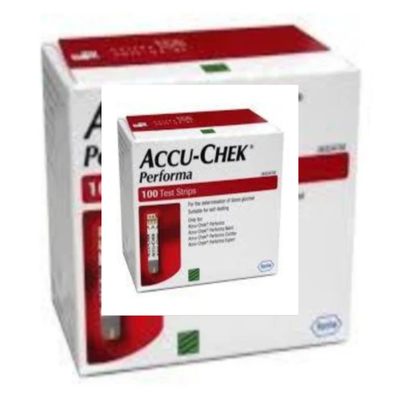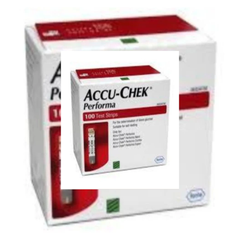

Description
xIntroduction
Expert Advice
- To be taken with or without meal. If taken with meal prevents the chances of GI disturbances.
- It is advised to contact the prescriber in case of muscle pain, fever, acute headache, difficulty urinating, concentrated urine, constant lethargy or in severe nausea & vomiting.
- The therapy courses to be fulfilled even if one starts feeling better.
- Advised to not perform sexual intercourse if visible lesions are present
- Maintain hydration (2-3 liters/day), unless restricted from the prescriber.
Primary Uses
Indications
An antiviral medication indicated in herpes simplex (a virus causing various abnormalities such as genital sores and inflammation), and varicella-zoster (chickenpox and shingles).
Side Effects
Side effects associated with this includes rash, hallucinations, somnolence (strong desire to sleep), photosensitivity (sun-sensitivity), convulsions. Some rare side effects may appear like transient increase in liver enzymes, blood urea & creatinine; acute renal (kidney) failure, hepatitis (liver infection) & jaundice.
Warnings
Pregnancy
There is no evidene of risk in humans. However, pregnant females should take their doctor's consent before using this medicine.Â
Lactation
Caution is advised or effect is undetermined with this medicine. Lactating mothers are advised to take their doctr's advice before beginning this drug.
Precautions
It is to be used with special caution in renal impairment, maintain hydration, & elderly patients.
Contraindications
It is contraindicated in case of dehydration & decreased kidney function. Also allergies may occur when used with penciclovir analogues & acyclovir analogues.
FAQS
What does this medicine treat?
Acyclovir is an antiviral medicine and helps in the treatment of herpes, chickenpox, and shingles.
How does it work?
It prevents the multiplication of viruses in human cells and therefore helps in clearing the infection.
What is the right method to use it?
It may be taken with or without food, dissolved in water, and at the exact time as prescribed.
Is there any specific instruction associated with its use?
You are advised to drink plenty of water while on treatment with this medicine, as it will prevent possible dehydration and kidney damage.
Does it completely cure the infection?
It does not cure infections caused by these viruses but helps to minimize the symptoms and shorten the duration of infection.
Does it prevent transmission of infection to others?
No, it does not.
Do elderly patients need to be more careful while using this medicine?
Older adults (over age 65 years) tend to experience more side effects, therefore such patients should be given a lower dose and should be monitored regularly for the vitals.
Return & Exchange Policy
xReturn & Exchange Policy
Return and Exchange Policy At Alkhaleej Pharmacy & Supermarket, we are committed to ensuring customer satisfaction. Please read the following return and exchange guidelines carefully. 1. Eligibility for Return & Exchange Customers may request a return or exchange within 7 days of purchase, if the product meets the following conditions: - The product belongs to the approved return & exchange category. - An incorrect product was delivered, or the wrong price was charged/displayed. - The product has damaged, defective, or faulty packaging. - All items must be in their original packaging, unused, and in sellable condition. 2. Non-Returnable & Non-Exchangeable Items For safety and hygiene reasons, the following items are not eligible for return or exchange: - Temperature-sensitive food products (e.g., frozen, dairy, fresh items). - Cosmetics, perfumes, and personal care products. - Customized or personalized items. - Products with incomplete accessories or freebies. - Gift cards, sale items, and promotional products. - Returns due to change of mind will not be accepted. 3. Return & Exchange Process Customers must request a return or exchange via our customer service desk or helpline. Logistics/shipping charges will be borne by the customer (unless the product is damaged, faulty, or incorrectly delivered). Once approved, customers will be notified regarding the status of the return or exchange. 4. Refund Procedure Once approved, refunds will be issued through the original payment method (shipping charges will be deducted). In case of exchange, customers will be notified of the delivery or pickup schedule. 5. Warranty Policy Electronics, household items, toys, and accessories are covered under a check warranty at the time of delivery/purchase. If any defect, missing item, or malfunction is found at the time of receiving, the item can be returned immediately. Once accepted, Alkhaleej Pharmacy & Supermarket will not be responsible for any faults. Customers may contact the respective brand’s warranty center for further support. 6. Rights Reserved Alkhaleej Pharmacy & Supermarket reserves the right to refuse any return or exchange if the product does not meet the above conditions. .
Please also note that the shipping rates for many items we sell are weight-based. The weight of any such item can be found on its detail page. To reflect the policies of the shipping companies we use, all weights will be rounded up to the next full pound.

